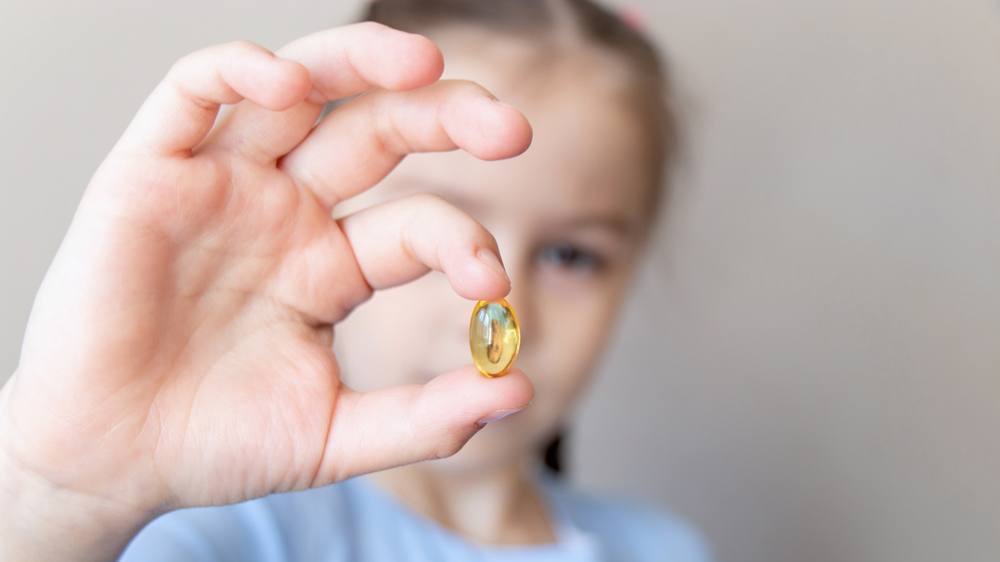-
Ask the Mayo Mom: Vitamins, nutritional supplements and special diets for children

Commercials and advertisements often target parents, suggesting they should give their kids vitamins and supplements to help them grow strong and stay healthy. But is it true?
The short answer is no.
"By and large, when kids are generally healthy, when they're growing well, when there is no big concern, there's really no need for any extra vitamins or supplements," says Dr. Erin Alexander, a Mayo Clinic gastroenterologist.
Experts agree that most kids should get their vitamins from food, not supplements. The American Academy of Pediatrics states that healthy children receiving a normal, well-balanced diet do not need vitamin supplementation over and above the recommended dietary allowances that they get from the foods they eat.
While many young children may be selective about what they eat, that doesn't necessarily mean that they have nutritional deficiencies. Many common foods — including breakfast cereal, milk and orange juice — are fortified with important nutrients, such as B vitamins, vitamin D, calcium and iron. So your child may be getting more vitamins and minerals than you think.
Nutrition for kids is based on the same ideas as nutrition for adults. Everyone needs the same types of things, such as vitamins, minerals, carbohydrates, protein and fat. Children need different amounts of specific nutrients at different ages.
Food packed with nutrients — with no or limited sugar, saturated fat, or salt added to it — is considered nutrient-dense. Focusing on nutrient-dense foods helps kids get the nutrients they need while limiting overall calories.
Nutrient-dense foods include:
- Protein. Choose seafood, lean meat and poultry, eggs, beans, peas, soy products, and unsalted nuts and seeds.
- Fruits. Encourage your child to eat a variety of fresh, canned, frozen or dried fruits. Look for canned fruit that says it's light or packed in its own juice. This means it's low in added sugar. Keep in mind that 1/4 cup of dried fruit counts as one serving of fruit.
- Vegetables. Serve a variety of fresh, canned, frozen or dried vegetables. Choose peas or beans, along with colorful vegetables each week. When selecting canned or frozen vegetables, look for ones that are lower in sodium.
- Grains. Choose whole grains, such as whole-wheat bread or pasta, oatmeal, popcorn, quinoa, or brown or wild rice.
- Dairy. Encourage your child to eat and drink fat-free or low-fat dairy products, such as milk, yogurt and cheese. Fortified soy beverages also count as dairy.
"When we're thinking about a child's nutrition, it's really important that we think very broadly," says Dr. Dana Steien, a gastroenterologist and director of pediatric nutrition at Mayo Clinic Children's Center. "Macronutrients — protiens, carbohydrates and fats — are where we get our calories. Micronutrients are all our minerals and vitamins."
Another important part of a healthy diet is limiting a child's calories from added sugars, saturated fats and salt. Check nutrition labels on food products for information on calories and serving sizes.
While most kids get what they need from the foods they eat, there are certain medical situations or conditions where children need nutrient supplementation or specialized diets. For instance, babies born prematurely may require nutritional supplements to help them grow. Some children may develop iron, vitamin D or calcium deficiencies that require supplementation.
Another common issue is kids who develop allergies or food intolerances that may require them to follow a modified diet such as gluten-free, low fructose or low lactose. These special diets should be supervised by a dietitian or your child's health care team.
On this "Ask the Mayo Mom" edition of the Q&A podcast, Drs. Alexander and Steien join host, Dr. Angela Mattke, to talk about nutrition, supplements and special diets for children.
Related Articles:
- "Should I give multivitamins to my preschooler?"
- "Nutrition for kids: Guidelines for a healthy diet."
- "Kids and sodium: Serious risks, alarming realities."
Related Articles







